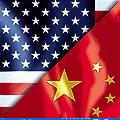U.S.-China Dialogue
As U.S. Secretary of State Hillary Clinton said during the second round of the U.S.-China Strategic and Economic Dialogue, which took place May 24th and 25th in Beijing, "few global problems can be solved by the United States or China acting alone. And few can be solved without the United States and China working together." Secretary Clinton said that progress has been made in some areas of common concern, but there is much more to be done. With regard to international security challenges, the U.S. and China continue to consult closely on the danger posed by Iran's nuclear program. North Korea also remains a matter of urgent concern. Last year, the U-N Security Council passed a strong resolution in the wake of North Korea's nuclear test. "And today," said Secretary Clinton, "we face another serious challenge, provoked by the sinking of the South Korean ship. So, we must work together again to address this challenge and advance our shared objectives for peace and stability on the Korean peninsula." On the issues of climate and energy, the U.S. and China have built on the memorandum of understanding signed at the last round of the dialogue, collaborating on new, clean energy research, including the U.S.-China Clean Energy Research Center. The Center will facilitate collaboration between American and Chinese scientists in the areas of energy efficiency and clean coal, including carbon capture and storage, and low-emission vehicles.
The United States has started a new dialogue aimed at expanding educational and cultural engagement in order to deepen understanding and cooperation between the American and Chinese people. This includes a bold initiative to increase over the next four years the number of American students studying in China to 100,000.
The United States also continues to raise human rights concerns and to encourage China to abide by its international human rights commitments.
The United States and China have very unique cultures and histories. "But we know," said Secretary Clinton, "that our future, both our challenges and our opportunities, will be shared. We have traveled different paths, but that shared future is our common destination and responsibility."

